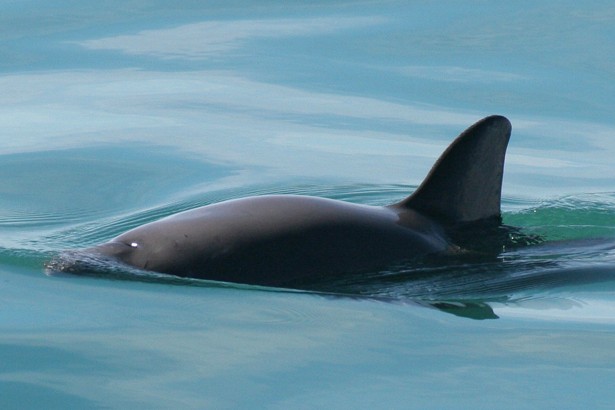Illegal fishing, logging and poaching are impacting two-thirds of the 57 natural World Heritage sites monitored by the International Union for Conservation of Nature (IUCN) this year, putting some of the world’s most precious and unique ecosystems and species at risk.

Ahead of the 41st session of the World Heritage Committee, starting on Sunday, July 2, 2017 in Kraków, Poland, IUCN has recommended listing Mexico’s Islands and Protected Areas of the Gulf of California on the List of World Heritage in Danger due to illegal gillnet fishing, which threatens the vaquita with imminent extinction.
The IUCN is also concerned over continued impacts of illegal activities, including logging and poaching, on the unique biodiversity of Madagascar’s Rainforests of the Atsinanana and on Białowieża Forest – one of Europe’s last remaining primeval forests located in Poland and Belarus.
“It is alarming that even our planet’s greatest natural treasures are under pressure from illegal activities,” says IUCN Director General Inger Andersen. “World Heritage sites are recognised as the planet’s most unique and valuable places, for nature and for people. If destroyed, they are lost forever.
“World Heritage status is designed to grant these places the highest level of protection, and we as the international community are responsible for the effectiveness of this protection. Only through strong international cooperation can we eliminate the illegal and unsustainable practices that are having such a devastating impact on these extraordinary places.”
Illegal wildlife trade is threatening the vaquita – the world’s smallest porpoise – with extinction. The Islands and Protected Areas of the Gulf of California became a World Heritage site in 2005 due to its unique marine biodiversity. It hosts a third of the world’s cetacean species. The vaquita is a victim of by-catch from illegal fishing of a Critically Endangered fish, the totoaba, whose swim bladder fetches high prices in Asian markets.
Despite Mexico’s extensive efforts to combat the illegal gillnet fishing, the vaquita’s survival remains at severe risk, with a crash in the population leaving only about 30 individuals in the wild. IUCN recommends placing the site on the List of World Heritage in Danger to mobilise urgent action to protect the site. It calls for a permanent ban on gillnets, as well as strengthened international cooperation to address threats to the site.
Madagascar’s Rainforests of the Atsinanana acquired ‘in danger’ status in 2010 – only three years after being listed as a World Heritage site – due to illegal logging of ebony and rosewood. The site is a key habitat for endangered lemurs, which are also the target of poaching. Despite Madagascar’s ongoing efforts to address the threats, in 2016 there was a marked increase in illegal logging. IUCN recommends that the site should remain on the List of World Heritage in Danger and calls for stronger efforts to address the threats, including increased cooperation between countries along trading routes.
If Poland continues to undertake wood extraction and logging in old-growth areas of Białowieża Forest, intact habitats will be lost. The European Commission recently expressed concern over the removal of ancient trees from the forest, which is also a Natura 2000 site. Inscribed on the World Heritage List in 1979 as one of the first World Heritage sites, and extended in 1992 and 2014, the site is shared between Poland and Belarus and covers a total area of 141,885 hectares. Białowieża is one of the few remaining primeval forests on the European continent. It is home to the iconic European Bison and hosts more than 250 bird and over 12,000 invertebrate species.
The IUCN recommends a monitoring mission to the site so that the situation can be fully assessed, and actions agreed. Should danger to the site’s Outstanding Universal Value be confirmed, Białowieża will be considered for inscription on the List of World Heritage in Danger in 2018.
International cooperation is starting to demonstrate results in addressing illegal activities in Thailand’s Dong Phayayen-Khao Yai Forest Complex. IUCN’s mission to the site noted that that cooperation between Thailand, Cambodia, China, Lao People’s Democratic Republic and Viet Nam, in addition to strengthened coordination of efforts within Thailand, resulted in a decrease in illegal logging of Siamese rosewood, which had been on the rise in recent years.
More resources are now invested into the site, with an action plan aiming to intensify patrol efforts using space technology. The forest complex is internationally important for the survival and conservation of globally threatened mammals, birds and reptiles. It also serves as one of Thailand’s most important watersheds.
The IUCN is the official advisory body on nature to the World Heritage Committee, recommending new sites to be included on the World Heritage list, and proposing actions to protect World Heritage sites facing threats.
